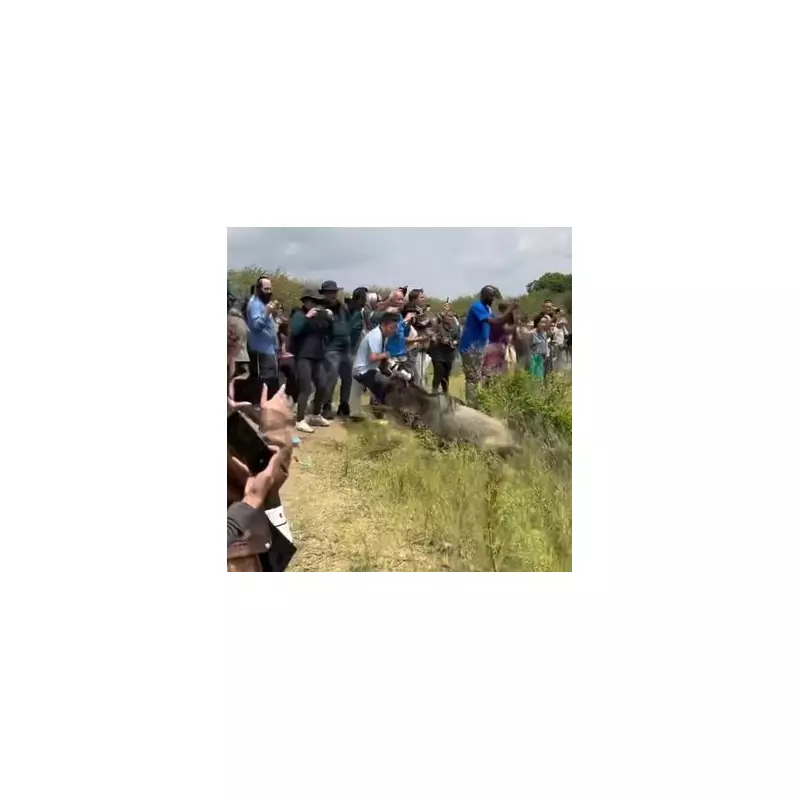
In a breathtaking display of recklessness, a group of safari tourists has been caught on camera triggering a potentially deadly wildebeest stampede at Kenya's world-famous Maasai Mara National Reserve.
The shocking incident, captured in viral footage, shows visitors leaping from their vehicles to stand directly in the path of the annual Great Migration - one of nature's most spectacular events. Their irresponsible actions forced hundreds of panicked wildebeests to abruptly change direction, creating a dangerous situation for both animals and humans.
The Perilous Encounter
Eyewitnesses report the tourists deliberately positioned themselves as close as 20 meters from the charging herd, ignoring basic safari safety protocols. The footage shows:
- Tourists sprinting across open plains toward the moving herd
- Multiple vehicles parked dangerously close to migration routes
- Visitors standing in direct path of thousands of migrating animals
- Wildebeests scattering in confusion as humans block their natural path
Expert Outrage and Warnings
Wildlife conservationists have expressed fury at the incident, highlighting the extreme danger posed to both species. "This isn't just irresponsible - it's potentially lethal," stated Dr. Rebecca Fletcher, a wildlife biologist specialising in East African ecosystems. "Wildebeests during migration are incredibly powerful and unpredictable. A stampede could easily trample humans to death while causing massive stress to the animals."
Kenyan authorities have repeatedly warned visitors about maintaining safe distances during wildlife viewing. The Maasai Mara management requires all safari vehicles to stay at least 25 meters from most animals and 50 meters from predators.
Broader Implications for Wildlife Tourism
This incident highlights growing concerns about irresponsible tourism affecting fragile ecosystems. Conservation groups are calling for:
- Stricter enforcement of safari guidelines
- Heavier penalties for violating wildlife protection rules
- Mandatory education sessions for all park visitors
- Blacklisting of tour operators who permit dangerous behaviour
Tourism remains vital to Kenya's economy, particularly wildlife safaris that generate significant revenue for conservation efforts. However, experts worry that such incidents could damage the country's reputation as a responsible wildlife destination.
The Kenyan Wildlife Service has launched an investigation into the incident and is reviewing footage to identify the tourists and tour operator involved. Potential penalties include heavy fines and permanent bans from Kenyan national parks.





